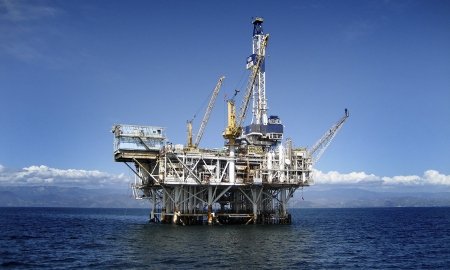Thailand is growing fast, and like any rapidly developing economy, so too is its demand for energy. Unfortunately for Thailand, it is not well endowed with natural resources such as oil and gas and is a net energy importer. With few domestic resources and dwindling prospects in nearby waters, it is necessary for the Southeast Asian country to explore ever further to ensure that its growing demand for energy is met.
For the country’s largest company, PTT, energy security in Thailand is its raison d'être. Its objective is to supply 50 per cent of Thailand’s energy demand by 2020; it currently provides the country with about 15 per cent of its energy needs.
Over the past few years, with regional oil and gas resources unable to meet the Thai demand for power, PTT has travelled to the four corners of the earth and has been engaged in a number of high-profile mergers and acquisitions, investing billions of dollars to increase its foothold in the global energy market. It now has operations in Australia, the Middle East, the ASEAN region, Africa and North America and is active in the oil, gas, coal, bio-fuel and renewable sectors.
The company has grown from strength to strength and is taking on some of the big international players in energy. Last year, the company battled it out in a bidding war with Royal Dutch Shell to take control of British firm Cove Energy. In this David versus Goliath clash, it was David that came out on top; at a cost of around £1.29 billion, PTT took control of Cove, whose prize asset and main draw was its 8.5 per cent stake in Mozambique’s Rovuma Area 1, thought to be one of the world’s richest natural gas discoveries.
Another high-profile takeover last year was PTT’s buyout of Singapore coal giant, Sakari. The Thai conglomerate, which already had a 45 per cent stake in the coal firm, paid around £640 million for the remaining 55 per cent.
This aggressive acquisition strategy has certainly paid off. In 2012, the company’s total assets grew 16 per cent and subsidiary PTT Exploration & Production posted a net profit surge of 28 per cent. PTT ranked 95th on the Fortune Global 100 in 2012, a goal the company itself did not expect to reach until 2020. In 2011 it ranked 128th on the Global 500 – an improvement of 27 places on its position the year prior – and remains the only Thai company to make the prestigious list of the top 500 global companies.
The Thai oil company has recently put two other feathers in its hat, as well. In 2011 and 2012, PTT was listed on the Dow Jones Sustainability Indexes (DJSI) and is today the sole Thai company ranked among the world’s 15 leading oil and gas producing corporations.
PTT plans to invest a further £8.3 billion over the next five years, half of which will be shared out among downstream activities: in oil refining, oil trading services, coal and plantation, petrochemicals and renewables.
When it comes to renewables, PTT and the Thai government share a similar vision. The latter wants to see close to 30 per cent of energy needs being met by renewables by 2030, from both domestic sources and imports. PTT will be central to this goal, and the company is already investing large sums in innovation and research in clean energy technologies. PTT CEO Dr Pailin Chuchottaworn wants the firm to become a so-called TAGNOC, a technologically advanced green national oil company.
PTT’s investments in innovation, technology and alternative energies so far this year have included: £26.9 million in an industrial eco-estate in the Rayong province which will develop bio-petrochemicals and bio-fuels; £221 million in the Rayong Institute of Science and Technology and Rayong Science academy; and a joint venture with Thai Solar Energy Company to develop 10 solar farm projects in Kanchanaburi and Suphan Buri at a cost of £30.7 million.
Last year, due to its commitment to develop innovations in product quality and services, PTT secured a number of accolades: the Best State Enterprise (Best of the Best) Award; Outstanding Innovation Award, presented by the Ministry of Finance; HM the King’s Best National Innovation Award; and an STI Award 2012 on Green Innovation, presented by Thailand’s National Science Technology and Innovation Policy Office.

0 COMMENTS